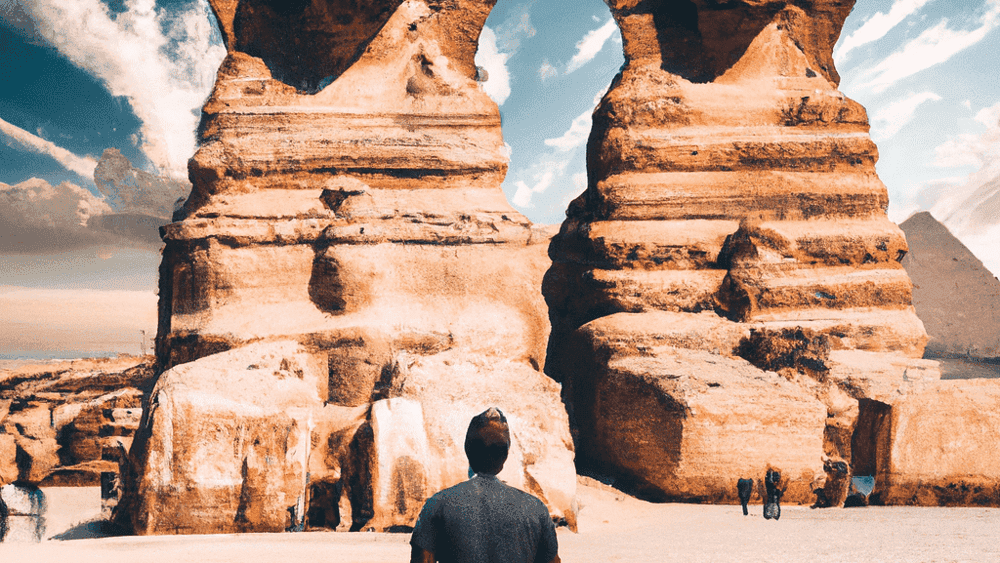**Title: Respecting Local Customs: A Must for Travelers in Egypt**
**Introduction**
Egypt, a land steeped in history and rich in culture, beckons travelers from all corners of the globe. As travel agents and tour operators, it is your duty to ensure that your clients not only enjoy their journey but also engage with the local culture in a respectful manner. Understanding and respecting local customs is essential for fostering positive interactions between visitors and the communities they explore. This blog post will delve into the importance of cultural sensitivity in Egyptian tourism and propose training programs that can equip you with the knowledge to better serve your clients.
**Understanding Local Customs**
Egyptian culture is a tapestry woven from millennia of history, religion, and traditions. Before your clients embark on their journey, it’s crucial for them to understand the local customs that govern interactions in this beautiful country.
**What are some key local customs that travelers should be aware of in Egypt?**
Travelers should be informed about the significance of greetings, dress codes, and dining etiquette. For instance, a common greeting among Egyptians is “Salam,” which means peace. When meeting someone, a firm handshake is appropriate, but be mindful of gender norms, as men and women may not always shake hands. Dress modestly, especially in religious sites, where women should cover their arms and legs, and men should avoid shorts. Additionally, sharing a meal is an important aspect of Egyptian hospitality, so understanding the customs around dining can enhance the experience.
To equip travel agents with valuable insights into these customs, we recommend a comprehensive training program that covers cultural sensitivity. These programs can be tailored to fit the specific needs of your agency, ensuring that your team is well-prepared to educate clients about the nuances of Egyptian culture.
**The Importance of Cultural Sensitivity in Travel**
Cultural sensitivity goes beyond just recognizing customs; it involves an understanding of the local way of life. By promoting respectful travel, you can help travelers navigate cultural differences, avoid misunderstandings, and create meaningful connections with the local community.
**How can cultural sensitivity training benefit travel agents and tour operators?**
Cultural sensitivity training can empower travel agents and tour operators to facilitate respectful interactions between travelers and locals. By understanding the historical and social context behind certain customs, agents can provide clients with deeper insights into their destinations. This not only enhances the travel experience but also fosters a sense of responsibility among travelers, encouraging them to respect local cultures and traditions.
Incorporating cultural sensitivity training into your agency’s offerings can set you apart from competitors. Clients are increasingly looking for travel experiences that are authentic and respectful, and having a team that is well-versed in local customs can lead to higher customer satisfaction and repeat business.
**Practical Tips for Respectful Travel in Egypt**
While formal training is invaluable, there are practical tips that travel agents can share with clients to ensure respectful travel in Egypt.
**What are some practical tips for travelers to respect local customs?**
1. **Learn Basic Arabic Phrases:** Encouraging travelers to learn a few essential Arabic phrases can go a long way in showing respect. Simple greetings and expressions of gratitude can foster goodwill and create a connection with locals.
2. **Respect Religious Sites:** Egypt is home to numerous mosques, churches, and temples. Clients should be advised on the appropriate behavior when visiting these sacred locations, such as removing shoes and refraining from taking photos where prohibited.
3. **Practice Responsible Photography:** Travelers should ask permission before taking photos of individuals, especially in rural areas. This small gesture can prevent discomfort and demonstrate respect for personal privacy.
4. **Support Local Businesses:** Encourage clients to engage with local artisans, markets, and eateries. This not only enhances their experience but also contributes to the local economy and promotes sustainable tourism.
**Conclusion**
As Egypt continues to attract travelers eager to explore its rich heritage, the responsibility falls on travel agents and tour operators to ensure that these journeys are undertaken with respect and understanding. Training programs focused on cultural sensitivity can equip you with the tools needed to educate your clients about local customs and foster respectful travel experiences. By prioritizing cultural awareness, we can create a positive impact on both travelers and the communities they visit.
At Discovery Tours, we believe that respectful travel is the key to unlocking the true essence of Egypt. Let’s work together to inspire travelers to embrace the beauty of our culture while leaving a positive footprint on this magnificent land. Together, we can make every journey not just a trip, but a meaningful experience that bridges cultures and fosters goodwill.





